LATEST NEWS


(This opinion piece first appeared in today’s Los Angeles Times.)
The U.S. economy has turned a corner. The national unemployment rate hit a post-recession low of 7.8 percent in September. Rising consumer confidence, increasing home prices and other leading economic indicators confirm the trend.
Unemployment is still too high, but a focus on the number of jobs obscures a serious long-term crisis of declining wages and a shrinking middle class that is having a harder and harder time making ends meet. New jobs pay less, raises are rare and benefits even rarer. According to a National Employment Law Project study released in August, the majority of new jobs created in the last two years pay just $13.83 an hour or less. Nobel laureate economist Joseph Stiglitz recently said, “Increasing inequality means a weaker economy” for all of us.
» Read more about: Raising the Minimum Wage Is the Least We Can Do »
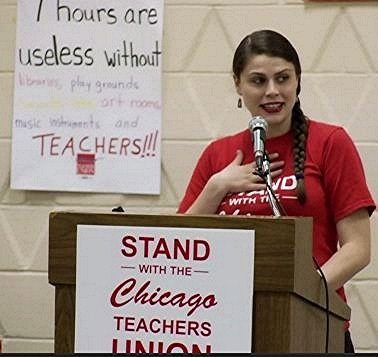
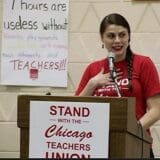
In September, 25,000 Members of the Chicago Teachers Union (CTU) stood strong on picket lines and flooded the streets of downtown Chicago in rallies, refusing to return to work until the school district and Mayor Rahm Emanuel came closer to their idea of fair in contract negotiations.
They prevailed. The teachers defeated merit pay, forced the district to hire 600 teachers and took care of laid-off workers. In doing so, they showed that teachers’ unions will not lie down, even as privatization encroaches. The teachers and unions also experienced an outpouring of support from activists and the general public.
How did CTU pull it off? What lessons are there to learn from the victory in Chicago?
A recent forum asked how CTU transformed its union in order to draw lessons for the future from the successful campaign. The forum was documented on video (posted above). Featured speakers are:
» Read more about: Chicago Teachers: How We Won Our Strike »


Wells Fargo Bank and US Bank have chosen to celebrate Breast Cancer Awareness Month by trying to evict breast cancer survivors from their homes.
Last week, Ana Casas Wilson — a wheelchair-bound woman with cerebral palsy and terminal stage-four breast cancer, and who has struggled for months to get Wells Fargo and US Bank to accept her money and stop foreclosing on her home of 40 years — received a final five-day notice to vacate from L.A. County Sheriff Lee Baca’s office. Wilson and her family briefly fell behind on her payments after she had to go into the hospital for a double mastectomy, as I described in an earlier post. She and her friends and supporters have launched a round-the-clock vigil at her home in a blue-collar suburb outside Los Angeles (8968 San Juan Ave., South Gate, CA 90280) to resist eviction, as the Los Angeles Times reported last week.
» Read more about: Foreclosures: Stop Cancer Survivor's Eviction! »
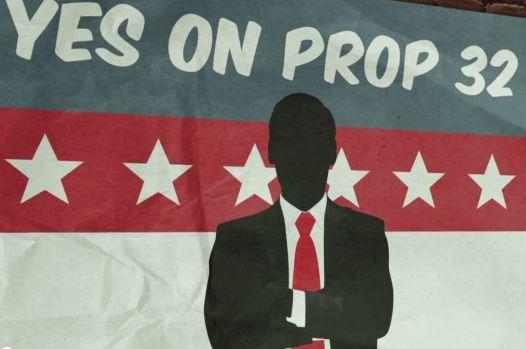

» Read more about: Proposition 32: "Corporations Know Best" »
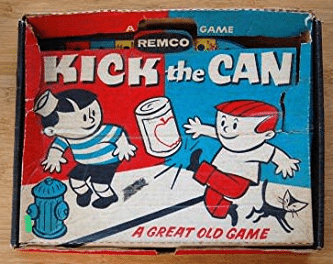

“Kick the can down the road” may be a politician’s mantra, but it’s certainly not what some Native Americans meant when they spoke of the Seventh Generation. The Iroquois thought that decision-making ought to consider the impact on children yet to come. Politicians, on the other hand, pick the least painful path now and let someone else deal with the consequences 30 years from now.
The Los Angeles City Council just kicked the can. Its members, at the urging of the Mayor, voted almost unanimously to change the pension program for new civilian city employees. This policy change only applies to new hires and exempts police, firefighters and the employees of the Department of Water and Power. The plan reduces new workers’ pensions by two-thirds, eliminates health-care support for their spouses and decreases take-home pay during years when the stock market isn’t performing well enough to sustain retirement investments.
» Read more about: Pensions: City Kicks a Can Down the Road »

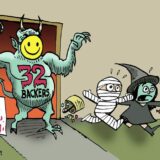
“We’re Up to $60 Million”
It’s an unreasonably warm October day, and I’m milling about awkwardly with a handful of suits at a mixer in a small banquet hall at Newport Beach’s Pacific Club—which, according to its website, is the gathering place of choice for the “distinctive life-style of Orange County’s business and professional leaders.”
An incredible thirst suddenly overwhelms me, as I look down and see I’ve practically sweated through my cheap suit. I try my best to keep control of my decorum, but when a busser passes by with a lone Arnold Palmer on his tray, I snatch it greedily from the outstretched hands of another guest and suck the saccharine concoction down in one gulp.
The hot weather may be playing a small role in my odd behavior, but my discomfort is mainly due to the fact this is no ordinary mixer. I’ve successfully infiltrated one of the most powerful and secretive Republican organizations in the country: The Lincoln Club of Orange County.
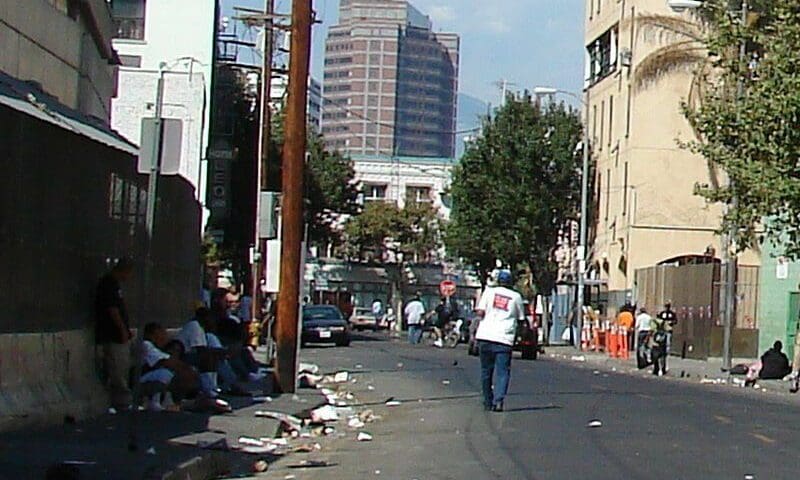

A recent story in The New York Times, back in its business section, had important news about inequality: “Income Inequality May Take Toll on Growth.” A couple of economists at the IMF reported research (here) showing that, across many countries, periods of greater income inequality tend to be followed by slow-downs in economic growth.
This is, actually, old news. About 20 years ago the research literature already showed that inequality probably damped the economy (see pp. 126ff here). But this remains important to repeat – not just because reporting the baleful effects of inequality now has the imprimatur of the IMF, but also because so many people still resist the news; they insist instead on believing the opposite, that inequality stimulates the economy, to the benefit of everyone. And, of course, this insistence has political implications right now.
» Read more about: Growth Is the Price of Income Inequality »


Frying Pan News reporter Matthew Fleischer discussed Proposition 32 on KPFK’s Uprising program Monday morning, joining host Sonali Kolhatkar (left) and Jessica Parra-Fitch (center), who talked about Prop. 37’s attempts to get genetically modified food labeling on the books in California.
» Read more about: Matthew Fleischer Discusses Proposition 32 on KPFK »
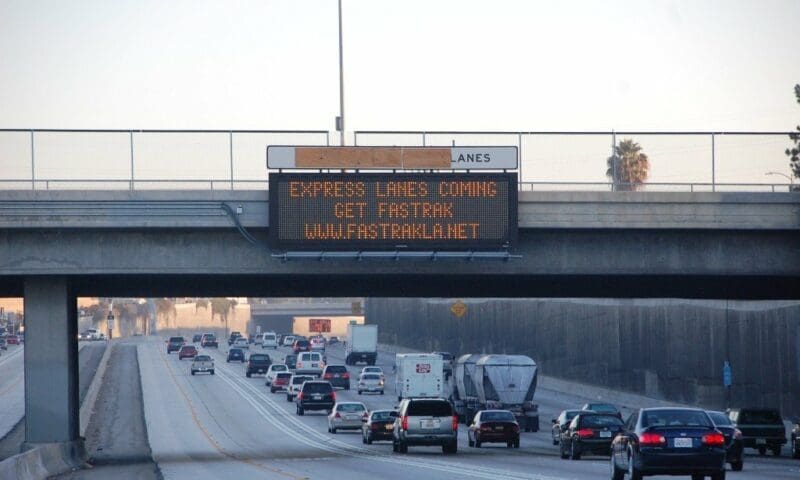

Starting on November 10, Los Angeles will begin a one-year experiment to convert High Occupancy Vehicle (HOV) lanes, better known as carpool lanes, to High Occupancy Toll (HOT) lanes on two major freeways. Toll lanes are not new to California drivers, but this is the first time we will see these lanes on L.A.’s busiest freeways.
The HOT lanes will allow lone drivers to access the current carpool lanes on the I-10 (beginning early 2013) and I-110 (November 10) freeways by paying a toll that changes based on the current level of traffic. Drivers who utilize carpools, van pools, buses and motorcycles will continue to access those lanes for free. (For more information on all the rules and details, check out Metro’s handy-dandy FAQ page.)
Metro argues that HOT lanes will reduce congestion in the regular lanes, and that all revenue from freeway tolls will go directly to fund improvements to public transportation and roads near the freeways where tolls are collected.
» Read more about: HOT Lanes Are Heating Up in Los Angeles »
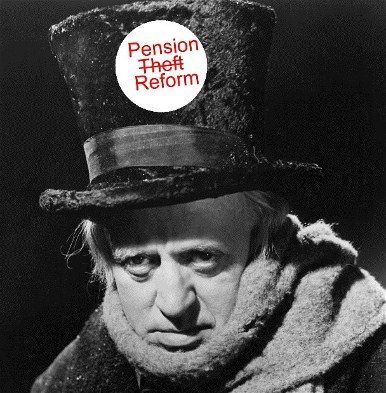

Former Los Angeles Mayor Richard Riordan is pushing a ballot initiative that would decimate city workers’ pensions and replace them with risky 401(k) plans.
Riordan is aiming more at voters’ emotions than he is at solving a budget issue. It won’t solve the city’s budget problems. If Riordan’s initiative gets on the ballot, it will only make things worse.
I’ve worked as a tree trimmer for the City of L.A. for 15 years. When thinking about Riordan’s plan, I want people in L.A. to ask themselves these questions: How is the pension I earn during my years with the city going to take food off your table or take money out of your pocket? How is my pension going to keep you from finding work or paying your rent and bills?
The answer is simple: My pension does not hurt your quality of life.
So, what’s the motivation for Riordan’s attack on retirement?


These pages are filled with stories of bad corporate actors — companies that attempt to boost profits by cutting labor costs at the expense of safe and ethical work environments. It’s a pleasure, then, to report on a multinational company’s CEO who is trying to make a difference.
Karl-Johan Persson, the CEO of H&M, recently traveled to Bangladesh, a country from which the fashion giant sources tons of textiles, to meet with Prime Minister Sheik Hasina and ask that textile workers be paid a fair wage.
The visit was pure activism as H&M does not actually own any Bangladeshi factories, it simply sources from the country. The argument Persson used with the PM is strikingly similar to that used by U.S. living wage advocates: A higher wage will be good for the country, not just workers.
Corporate Social Responsibility Newswire reports on the strategy behind the visit:
In addition to working with suppliers to increase wages,
» Read more about: A Responsible Persson: H&M's Boss Argues for Wage Hikes »

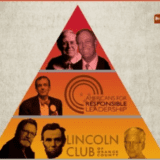
A new Frying Pan News infographic reveals the money and groups behind Proposition 32. Slide cursor over pyramid for interactive links.
» Read more about: Pyramid Scheme: Proposition 32's Power Elite »


Two weeks out from the presidential election, you may not have the epic battle between L.A.’s Chinatown community and Walmart foremost in mind. But this high-stakes conflict is nothing if not riveting, with all the twists and turns of a modern-day Chandler novel.
If you haven’t been paying attention the last few months, here’s a quick cheat sheet: In February Frying Pan News broke the story that Walmart was planning to open its first-ever Los Angeles grocery store in historic Chinatown. The prospect of the world’s largest retailer setting up shop in a neighborhood famous for its homegrown stores and restaurants prompted residents, business owners and activists to seek a temporary ban on chain stores in the area. Just as the City Council was poised to pass the ban, Walmart mysteriously – some would say suspiciously, in the wake of the corporation’s stunning Mexican bribing scandal – secured building permits for its Chinatown location the night before the Council vote.
» Read more about: Walmart vs. Chinatown: The Suspense Builds »


Big Food companies and their lobbying groups have lied to us many times. They convinced Congress to include tomato paste on pizzas as a vegetable. They say we need industrial, chemical-laden agriculture to feed the world. (Check out Anna Lappé’s new video Food MythBusters to learn that we don’t.) And Big Food has also spread the mythology that if the minimum wage is raised, food will become so expensive that none of us will be able to afford to eat out – or eat at all – again.
Yes, that’s a lie! On this Food Day 2012, our organizations are releasing a new report, A Dime a Day: The Impact of the Miller/Harkin Minimum Wage Proposal on the Price of Food. The proposed Fair Minimum Wage Act, introduced this year by Representative George Miller (D-CA) in the House and Senator Tom Harkin (D-IA) in the Senate would raise the federal minimum wage from $7.25 to $9.80 per hour over the next three years and the tipped minimum wage from $2.13 to 70 percent of the regular minimum wage.
» Read more about: What Can You Get for a Dime a Day? A Lot, Actually »


Fifteen people have died and several hundred have been infected in an outbreak of meningitis contracted from contaminated spinal steroid injections. The numbers are growing and so is awareness of the growth of a little known corner of the pharmaceutical industry, called compounding pharmacies, which is responsible for the tragedy. “We’re nowhere near the end of this problem,” Dr. William Schaffner, an infectious diseases expert at the Vanderbilt University Medical Center in Nashville, told CBS This Morning.
The compounding pharmacies originally were supposed to provide customized medication for individual patients but have morphed into bulk manufacturers outside of FDA’s regulatory reach.
At the heart of the tragedy is the compounders’ successful track record blocking FDA authority that could have averted the disaster. Their efforts are a textbook model of industry opposition to new rules that could save lives. Their arguments are the same that the Chamber of Commerce and industry are using today to block clean air,
» Read more about: Meningitis Outbreak: Unregulated Labs' Disgraceful Legacy »


I wrote this post for The Stansbury Forum, a site honoring the work and spirit of union activist, writer, friend and mentor Jeff Stansbury, who died in 2008.
Five years in Los Angeles and I was still suffering from the region’s alienating social atmosphere. I had a few good friends, a new relationship and some interesting work under my belt in sales, journalism and PR. But I couldn’t shake the sensation that people in L.A. keep their distance and that there was something innately “asocial” about this place.
As I’ve explained, the labor movement was the tonic for my personal crisis. Southern California’s sprawl, materialism and hyper-individualism became less of a preoccupation when I started working with unions. I was finally giving up my fantasy of heading back to Vermont and could concentrate my mind on universal themes: big stuff like ethnic and class roots,
» Read more about: Making History: Remembering Jeff Stansbury »

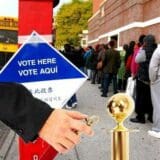
During much of this, my second year of retirement, I have been reading the three volumes of Taylor Branch’s history of America during the years of Martin Luther King, Jr. and the struggle for civil rights. Those rights hinged on the capacity of African Americans to vote, which state governments across the Deep South, especially, had precluded through a combination of laws and social conventions, reinforced by white-on-black violence. Here is the author’s first paragraph of the preface to his concluding volume in the trilogy:
“Nonviolence is an orphan among democratic ideas. It has nearly vanished from public discourse even though the most basic element of free government – the vote – has no other meaning. Every ballot is a piece of nonviolence, signifying hard-won consent to raise politics above firepower and bloody conquest. Such compacts work more or less securely in different lands. Nations gain strength from vote-based institutions in commerce and civil society,
» Read more about: A Vote of Confidence: Why We Must Safeguard the Ballot »


If you skipped down below, you saw that Joann is the Executive Director of the Food Chain Workers Alliance, a national coalition of workers’ organizations, and Jill is Director of Business and Culinary Development of Coosemans Shipping of L.A., a specialty produce distribution company. So, you may be wondering – what are these two doing writing a blog post together?
We are co-chairs of the Good Food Procurement working group of the Los Angeles Food Policy Council, an initiative of Mayor Antonio Villaraigosa. Over the past year and a half, our diverse group – including labor organizations, businesses, non-profit groups, school food service officials, public health advocates, and many more – has developed the Good Food Purchasing Pledge. And the L.A. City Council is poised to adopt the pledge via the Good Food Purchasing and Procurement Motion, sponsored by Councilmember Paul Koretz,
» Read more about: L.A. Is Leading the Good Food Movement! »


In October of 2011, Governor Jerry Brown signed into law the California Dream Act—which allows undocumented but high-achieving immigrant students to receive state funds to help pay for college. It was a monumental victory for tolerance and the culmination of a long fight—Arnold Schwarzenegger repeatedly vetoed similar measures during his tenure in the California governor’s office.
Come November 6, however, that fight could begin all over again if California’s Proposition 32 passes. The initiative will outlaw the use of automatic payroll deductions from union members and corporations for political purposes, crippling union political activity and empowering the measure’s billionaire backers to impose their political will on the state. While state unions passionately fought for the California Dream Act’s passage, they were opposed by politicians with ties to Prop. 32’s backers. Though they might not be rabid with anti-immigrant bile, Prop. 32’s moneymen have no problem funneling money to politicians who are.
» Read more about: Borderline Crazy: Prop. 32's Anti-Immigrant Allies »